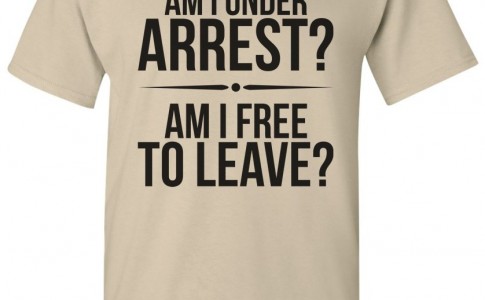It might actually be easier to save those millions by allowing prosecutors to dismiss bad cases on the first court date. Of course, prosecutors who drop cases aren’t tough on crime, and we’re not about to let any softie State’s Attorney get arrested in these parts!
The internet, my #1 source of completely accurate news reporting, tells me that President Obama will be doing his little “State of the Union” address tonight. I’m not exactly a White House insider, but I’ve got a pretty good idea of how it is going to go. Things have gotten better over the last year. (applause from roughly half the room). Things are looking up (applause from about half the room). Things are headed in the right direction (applause from about half the room). Under his leadership, the future is nothing but bright (half the room standing and clapping). He might be right. He might be wrong. I don’t know. I’ll be too busy watching the Blackhawks v. Nashville to pay attention, really.
What I do know, though, is that he’s probably not going to mention much about criminal law. It’s probably not even on his (or his speech writer’s) radar. People’s rights and freedom aren’t all that important anyway, right?
The reality is that it’s nearly impossible for an elected official to have a rational discussion about criminal law without losing votes- regardless of which party they choose to follow. The voting public has, time after time, blindly followed “get tough on crime” politicians… even when that tag line has little real substance. So, he’s going to continue to be “tough on crime.” Why bother even bringing it up?
I’ve never been accused of being an elected politician. I haven’t been elected to anything since I was elected (mistakenly, I think) vice-president of my Junior class in High School. So, I guess there’s no harm in having a real opinion. I’m sure this will cost me some votes in the next popularity contest, but if I were about to give the State of the Union address, here are two things I’d be sure to touch on (whether or not they garnered applause):
Sex Offender Laws are not working and need serious reform. Sex Offender reform starting with Megan’s Law has had little, if any, real effect on changing how the world works. While there is a lot of hype when registered sex offenders get arrested, you don’t really hear about Police using that registry much to prevent crimes. There is, certainly, the theory that parents and neighborhood-watch groups can “keep an eye” on registrants and thereby prevent further crimes. Of course, there is also a very well developed theory that those same people would actually be more productive by keeping an eye on the non-registered adults in their children’s lives. I’m not meaning to debate theory here. I did enough of that in Philosophy classes. As I said before, I’m a very practical person. Show me how many sex crimes are prevented by these laws. Show me how would-be victims don’t become victims because these laws exist. I’ve done my best to find these, and I can’t. I’m not saying that there should be no sex offender laws. I’m just saying that the ones we have enacted should make a difference. The currently enacted laws now have along history of doing just about nothing. Yet, we still pay legislators to make superficial tweaks to them every year or two.
We can save millions by changing the way our police get trained. Cops, in Illinois anyway, begin their ascension to copdom at the Police Training Institute (PTI). It’s a 10 week, exhaustive, crash-course on everything you need to know as a cop before you go for your “field training”. Everything from how to use “verbal judo” to how to write a police report. After going through the PTI they then get field trained by an “experienced” officer… somebody who probably also did the PTI about 20 years earlier. After that, some of them get updates on the law… periodically. They don’t really ever get tested on it again.
Most cops will never have to fire their gun in the course of their employment. Nearly all will have to testify in court- most of them many (even hundreds) of times. Oddly, modern policing theory is that the officers should have their shooting skills tested more than their legal knowledge.
In Matt’s world, if there is anybody who should be on top of the daily changes in criminal law and search and seizure issues it’s the men and women out on the streets making the arrests. I read DAILY email updates on appellate court opinions and law changes. So should they. Unfortunately, that is not the “state of the union” today.
How does that cost taxpayers millions? Through time and resources wasted on trials, hearings and court proceedings because of a search, arrest, or complaint that wasn’t legally sufficient to start.
It might actually be easier to save those millions by allowing prosecutors to dismiss bad cases on the first court date. Of course, prosecutors who drop cases aren’t tough on crime, and we’re not about to let any softie State’s Attorney get arrested in these parts!
I suppose, as a good American, I should watch the President’s speech tonight. Maybe I’m wrong. Maybe it won’t be filled with “half-room” applause and talk of a rosy future. Maybe he will tell us that the State of our Union is that he’s going to push broad criminal law reform upon the States (much like Bush did with seat belt laws), and save us millions. Maybe.
I just hope the Blackhawks can pull this one off. We really need to win this game.

